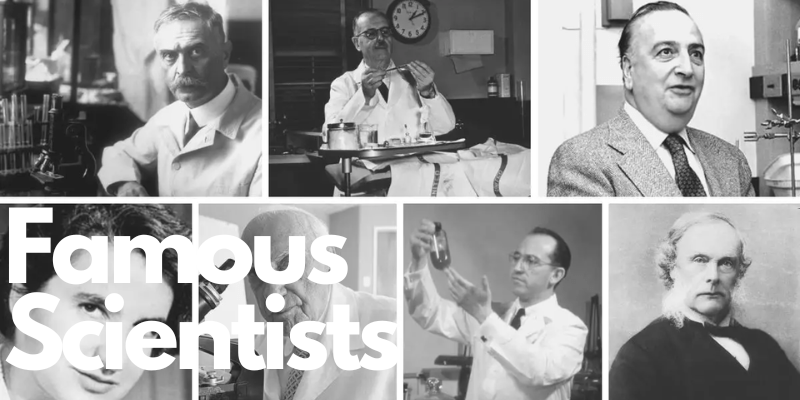10 Famous Scientists And Their Contributions
1. Albert Einstein (1879–1955)
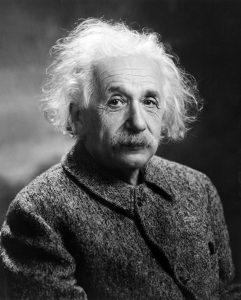 Albert Einstein, one of the most iconic and influential scientists of the 20th century, forever altered our understanding of the universe through his revolutionary theories in physics. Born in Ulm, Germany, on March 14, 1879, Einstein’s early interest in nature’s mysteries laid the groundwork for a scientific career that would fundamentally alter modern physics.
Albert Einstein, one of the most iconic and influential scientists of the 20th century, forever altered our understanding of the universe through his revolutionary theories in physics. Born in Ulm, Germany, on March 14, 1879, Einstein’s early interest in nature’s mysteries laid the groundwork for a scientific career that would fundamentally alter modern physics.
- Contribution: Albert Einstein’s legacy is evidence of the transformational potential of scientific research. His revolutionary theories of relativity fundamentally altered our perceptions of space, time, and energy. His research on Brownian motion and the photoelectric effect also served as the basis for quantum theory. In addition to his contributions to science, Einstein’s support of social justice and his famous equation E = mc^2 have had a lasting impact on society and science.
2. Marie Curie (1867–1934)
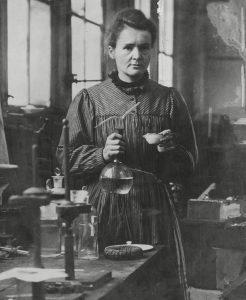 Marie Curie, a pioneering figure in physics and chemistry, exemplifies scientific brilliance and determination. Curie, born in Warsaw, Poland, on November 7, 1867, was the first woman to win the Nobel Prize and the only person to win prizes in two different scientific disciplines.
Marie Curie, a pioneering figure in physics and chemistry, exemplifies scientific brilliance and determination. Curie, born in Warsaw, Poland, on November 7, 1867, was the first woman to win the Nobel Prize and the only person to win prizes in two different scientific disciplines.
- Contribution: Marie Curie’s profound contributions to science, particularly her groundbreaking work on radioactivity and the discovery of radium and polonium, have left an indelible mark on physics and chemistry. Curie’s legacy goes beyond her groundbreaking research because she was the first woman to win the Nobel Prize and the only person to be honored in two scientific fields. Her dedication to scientific inquiry, resilience in the face of adversity, and commitment to practical applications, such as the development of mobile radiography units during World War I, make her an enduring symbol of intellectual brilliance and a trailblazer for women in STEM.
3. Isaac Newton (1643–1727)
 Isaac Newton, a towering figure in the history of science, laid the groundwork for classical physics and mathematics during the late 17th century. Newton was born on January 4, 1643, in Woolsthorpe, England. His intelligence was apparent from a young age. His groundbreaking work laid the groundwork for classical mechanics and transformed our understanding of the physical universe.
Isaac Newton, a towering figure in the history of science, laid the groundwork for classical physics and mathematics during the late 17th century. Newton was born on January 4, 1643, in Woolsthorpe, England. His intelligence was apparent from a young age. His groundbreaking work laid the groundwork for classical mechanics and transformed our understanding of the physical universe.
- Contribution: Isaac Newton’s contributions to science and mathematics are monumental, reshaping the foundations of classical physics and laying the groundwork for the Scientific Revolution. His laws of motion and the law of universal gravitation, presented in “Philosophiae Naturalis Principia Mathematica,” provided a unifying framework for understanding the motion of objects on Earth and celestial bodies. Newton was a brilliant mathematician who also contributed to the development of calculus, a tool vital to scientific analysis.
4. Charles Darwin (1809–1882)
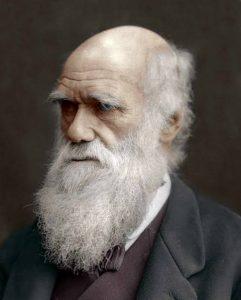 Charles Darwin, born on February 12, 1809, in Shrewsbury, England, is renowned for his groundbreaking contributions to biology and natural history. The theory of evolution by natural selection was introduced in his groundbreaking work “On the Origin of Species,” published in 1859 and completely changed our knowledge of the diversity of life on Earth.
Charles Darwin, born on February 12, 1809, in Shrewsbury, England, is renowned for his groundbreaking contributions to biology and natural history. The theory of evolution by natural selection was introduced in his groundbreaking work “On the Origin of Species,” published in 1859 and completely changed our knowledge of the diversity of life on Earth.
- Contribution: Charles Darwin’s groundbreaking contribution to science lies in his development of the theory of evolution by natural selection. Published in “On the Origin of Species” in 1859, Darwin proposed that species evolve through a process where advantageous traits are naturally selected, leading to the gradual development of new species. This theory revolutionized the field of biology, challenging prevailing notions and providing a unifying framework for understanding the diversity of life on Earth. Darwin’s work laid the foundation for evolutionary biology and influenced genetics, paleontology, and various other scientific disciplines.
5. Galileo Galilei (1564–1642)
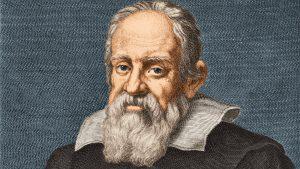 Galileo Galilei (1564–1642) was an Italian astronomer, physicist, engineer, and polymath who played a crucial role in the scientific revolution of the 17th century.
Galileo Galilei (1564–1642) was an Italian astronomer, physicist, engineer, and polymath who played a crucial role in the scientific revolution of the 17th century.
- Contribution: His telescopic findings confirmed the heliocentric theory, upending the time’s predominately geocentric viewpoints and igniting a dispute with the Catholic Church. Galileo was put on trial, condemned, and placed under house arrest, but his discoveries established the basis of contemporary science. His support of the scientific method, observations of heavenly bodies, and contributions to mechanics cemented his reputation as a pivotal figure in the progress of knowledge and human understanding.
6. Rosalind Franklin (1920–1958)
 Rosalind Franklin (1920–1958) was a British biophysicist and X-ray crystallographer whose work significantly contributed to the understanding of the molecular structures of DNA, RNA, viruses, coal, and graphite. Franklin, born in London, worked at King’s College London after receiving her Ph.D. in physical chemistry from Cambridge University.
Rosalind Franklin (1920–1958) was a British biophysicist and X-ray crystallographer whose work significantly contributed to the understanding of the molecular structures of DNA, RNA, viruses, coal, and graphite. Franklin, born in London, worked at King’s College London after receiving her Ph.D. in physical chemistry from Cambridge University.
- Contribution: Her notable achievements include using X-ray diffraction to capture images of DNA fibers, leading to the discovery of the helical structure of DNA. Unfortunately, Franklin’s crucial contributions were only partially acknowledged during her lifetime. Without her knowledge, James Watson and Francis Crick used her data to propose the double helix structure of DNA, which earned them the Nobel Prize in Physiology or Medicine in 1962. Franklin’s contributions to science, especially molecular biology, are acknowledged. Her work established the groundwork for our understanding of the molecular basis of life.
7. Niels Bohr (1885–1962)
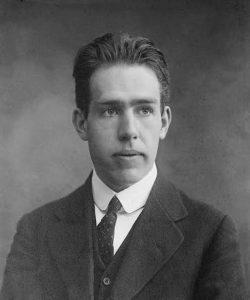 Niels Bohr was a Danish physicist who made foundational contributions to understanding atomic structure and quantum mechanics. Bohr was born in Copenhagen, and his early research was devoted to studying how electrons behave within atoms. The Bohr model of the atom, which he proposed in 1913, introduced the concept that electrons orbit the nucleus in discrete, quantized energy levels. This model satisfactorily explained the spectral lines of hydrogen.
Niels Bohr was a Danish physicist who made foundational contributions to understanding atomic structure and quantum mechanics. Bohr was born in Copenhagen, and his early research was devoted to studying how electrons behave within atoms. The Bohr model of the atom, which he proposed in 1913, introduced the concept that electrons orbit the nucleus in discrete, quantized energy levels. This model satisfactorily explained the spectral lines of hydrogen.
- Contribution: Niels Bohr was a pioneering Danish physicist whose groundbreaking contributions to atomic structure and quantum mechanics laid the foundation for modern physics. His work on quantum theory and the Bohr model of the atom greatly improved our knowledge of how atoms behave. Bohr, who received the Nobel Prize in Physics in 1922, founded a prestigious research institute and was instrumental in promoting scientific collaboration. His commitment to responsible scientific use was demonstrated by his participation in the Manhattan Project during World War II and later efforts for peaceful applications of atomic energy.
8. Jane Goodall (born 1934)
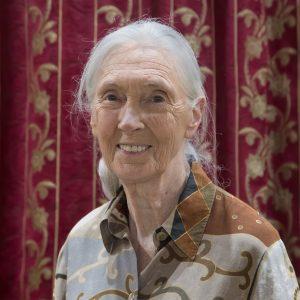 Dame Jane Goodall is a renowned British primatologist, ethologist, and anthropologist best known for her groundbreaking work with wild chimpanzees in Tanzania.
Dame Jane Goodall is a renowned British primatologist, ethologist, and anthropologist best known for her groundbreaking work with wild chimpanzees in Tanzania.
- Contribution: Jane Goodall’s groundbreaking contributions to primatology have revolutionized our understanding of chimpanzees and reshaped the field of ethology. Through her meticulous observations in the Gombe Stream National Park, she unveiled wild chimpanzees’ complex social structures and behaviors, dispelling previous notions of humans as the sole possessors of tool use. Her discovery that chimpanzees use tools upended long-held scientific theories and created new opportunities for research into the cognitive capacities of non-human primates. Beyond her scientific accomplishments, Goodall has left a lasting legacy as an advocate for environmental stewardship and wildlife conservation.
9. Stephen Hawking (1942–2018)
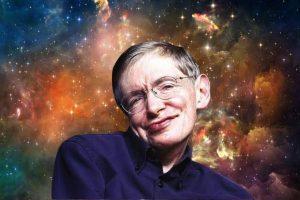 Stephen Hawking (1942-2018) was a theoretical physicist, cosmologist, and author who significantly contributed to theoretical physics and cosmology. Hawking, born in Oxford, England, showed an early interest in the universe and how it functioned.
Stephen Hawking (1942-2018) was a theoretical physicist, cosmologist, and author who significantly contributed to theoretical physics and cosmology. Hawking, born in Oxford, England, showed an early interest in the universe and how it functioned.
- Contribution: The legacy of Stephen Hawking is that of a brilliant theoretical physicist whose contributions revolutionized our knowledge of the universe. His ground-breaking research on black holes, which revealed Hawking radiation, upended and altered accepted ideas in astrophysics. In addition to his scientific accomplishments, Hawking’s perseverance in the face of ALS—using an automated voice synthesizer for communication—became an inspiring symbol of resilience.
10. Barbara McClintock (1902–1992)
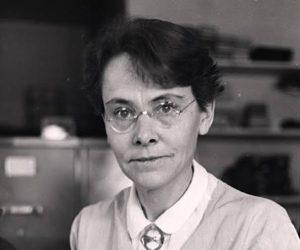 Barbara McClintock (1902–1992) was a pioneering American geneticist and cytogeneticist renowned for her groundbreaking work in genetics. McClintock spent most of her career working as a model organism with corn (maize).
Barbara McClintock (1902–1992) was a pioneering American geneticist and cytogeneticist renowned for her groundbreaking work in genetics. McClintock spent most of her career working as a model organism with corn (maize).
- Contribution: Barbara McClintock, an eminent American geneticist, revolutionized the field of genetics through her pioneering work with maize. In the 1940s, she discovered transposons, or “jumping genes,” demonstrating that certain genetic elements could move within a chromosome, influencing nearby gene expression. McClintock’s work established the groundwork for our comprehension of genome dynamics, gene regulation, and the evolution of genetic material despite early skepticism.
Conclusion
These scientists fundamentally altered the way we perceive the world. Their combined contributions to mathematics, physics, chemistry, and biology laid the groundwork for modern science. Thinking back on their contributions, it is clear that these bright minds not only expanded human knowledge but also cleared the path for upcoming scientific generations to push the envelope of what is thought to be possible and explore new territory. These scientists’ lasting influence is a testament to the transformative power of innovation, curiosity, and the unwavering pursuit of truth in science.
People are also reading:

